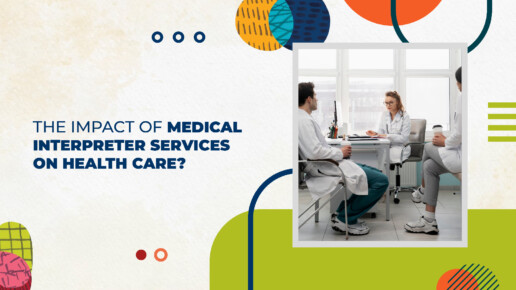The Impact of Medical Interpreter Services on Health Care?
Imagine being in a foreign country, feeling unwell, and not speaking the local language. Scary, right? Now, think about having to explain your symptoms to a doctor who doesn’t understand you. This scenario highlights the crucial role of communication in healthcare. Enter medical interpreter services a bridge that connects patients and healthcare providers, ensuring clear communication and better health outcomes.
Understanding Medical Interpreter Services
Definition of Medical Interpreter Services
Medical interpreter services involve professionals who facilitate communication between patients and healthcare providers who speak different languages. These interpreters are trained to understand medical terminology and convey information accurately.
Types of Medical Interpreter Services
There are various types of medical interpreter services, including:
- In-person Interpreting: An interpreter is physically present during the consultation.
- Telephonic Interpreting: Interpretation is done over the phone.
- Video Remote Interpreting (VRI): Interpreting services provided through a video call.
The Need for Medical Interpreters
Language Barriers in Healthcare
Language barriers can significantly impact the quality of healthcare. Miscommunication can lead to misdiagnoses, inappropriate treatments, and poor patient outcomes. This is especially true in countries with diverse populations where many patients do not speak the primary language used in healthcare settings.
Statistics on Non-English Speaking Patients
In the United States, for example, over 25 million people have limited English proficiency. This demographic highlights the critical need for effective medical interpreter services to ensure equitable healthcare access for all.
Improving Patient-Provider Communication
Enhancing Understanding
Medical interpreters help bridge the communication gap, ensuring that patients fully understand their diagnoses, treatment plans, and medical advice. This enhanced understanding is crucial for effective healthcare delivery.
Reducing Misunderstandings
By providing accurate interpretations, medical interpreters reduce the risk of misunderstandings that can lead to medical errors. Clear communication ensures that both patients and providers are on the same page, leading to better healthcare outcomes.
Impact on Patient Outcomes
Patient Satisfaction
When patients can communicate effectively with their healthcare providers, they are more likely to feel satisfied with the care they receive. Medical interpreters play a key role in enhancing patient satisfaction by facilitating clear and compassionate communication.
Treatment Adherence
Understanding the treatment plan is essential for patients to adhere to it. Medical interpreters ensure that patients know exactly what they need to do, from taking medications to following post-operative care instructions, which improves adherence to treatment.
Health Outcomes
Clear communication through leads to better health outcomes. Patients are more likely to follow through with treatments, attend follow-up appointments, and engage in preventive care when they fully understand the importance of these actions.
Cost-Effectiveness of Medical Interpreter Services
Economic Benefits
Investing in medical interpreter services can lead to economic benefits. By improving patient outcomes and reducing the need for repeated visits or prolonged hospital stays, these services can save money in the long run.
Cost-Saving in the Long Run
While there is an upfront cost to providing interpreter services, the long-term savings from improved health outcomes and reduced medical errors make it a cost-effective investment for healthcare systems.
Challenges in Implementing Medical Interpreter Services
Resource Limitations
One of the main challenges in providing medical interpreter services is the limitation of resources. Many healthcare facilities struggle to find qualified interpreters, especially for less common languages.
Technological Barriers
While technology can aid in providing interpreter services, there are still barriers to its implementation. Not all healthcare facilities have the infrastructure to support video remote interpreting or telephonic services.
The Role of Technology in Medical Interpretation
Telehealth and Remote Interpreting
With the rise of telehealth, remote interpreting has become more prevalent. This technology allows interpreters to provide services from a distance, making it easier to access interpreting services regardless of location.
AI and Machine Translation
Artificial intelligence and machine translation tools are also being explored to aid in medical interpretation. While these tools are not yet perfect, they hold promise for supplementing human interpreters and improving access to interpretation services.
Cultural Competence in Healthcare
Understanding Cultural Nuances
Effective medical interpretation goes beyond language. Understanding cultural nuances is essential for building trust and ensuring that patients feel understood and respected.
Building Trust with Patients
Cultural competence helps in building trust between patients and healthcare providers. When patients feel that their cultural background is respected, they are more likely to engage in their healthcare and follow medical advice.
Conclusion
Medical interpreter services play a vital role in improving the quality of healthcare for non-English speaking patients. By facilitating clear communication, these services enhance patient satisfaction, improve health outcomes, and ensure equitable access to healthcare. As the healthcare industry continues to evolve, the importance will only grow, highlighting the need for continued investment and innovation in this field.

